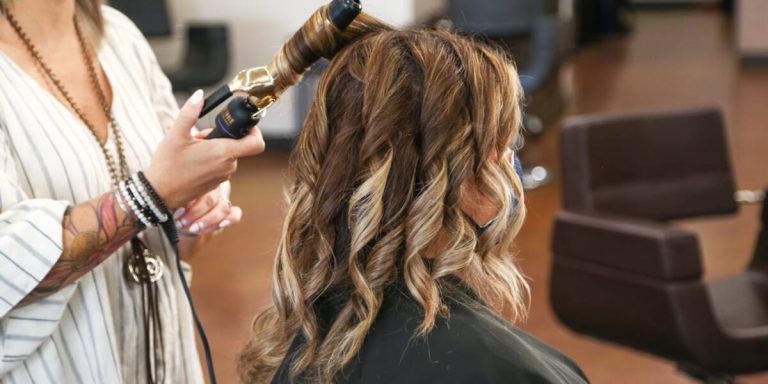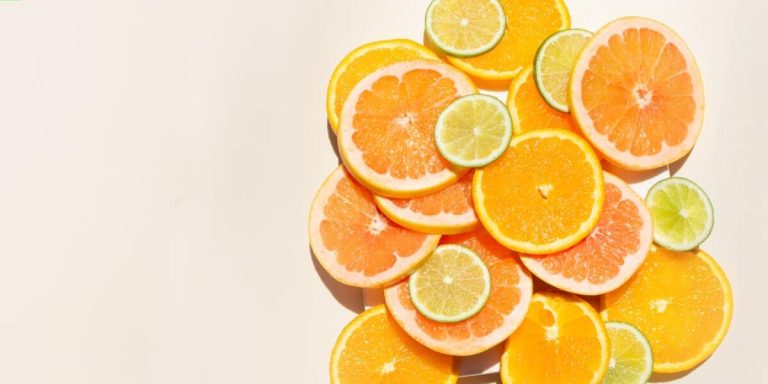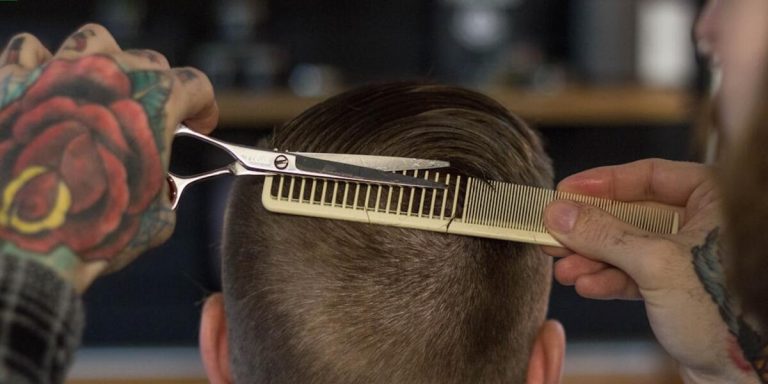Does Prenatal Vitamins Help with Hair Growth? Unveiling the Truth
It’s no secret that many women notice a significant change in their hair during pregnancy, with some even experiencing unusually rapid growth. This phenomenon has raised questions such as “does prenatal vitamins help with hair growth?” Is it the hormonal shifts or could these dietary supplements be aiding this transformation? It is crucial to distinguish facts from popular beliefs.
Prenatal vitamins are formulated specifically for pregnant ladies to support their increased nutritional needs and those of their unborn babies. They’re packed full of essential nutrients like folic acid, iron, calcium and sometimes biotin – all known ingredients beneficial for lush locks. So if you are wondering whether these pills can also boost your mane’s health resulting in faster hair growth, continue reading as we delve into scientific explanations.
Did you know?
Surprisingly, many hair stylists and dermatologists recommend prenatal vitamins for hair growth even outside of pregnancy. This is due to their rich blend of B-vitamins, folic acid and biotin that fosters healthy cell production leading to strong and luscious strands!
Understanding Prenatal Vitamins and Hair Growth
Prenatal vitamins are often associated with hair growth, owing to the essential nutrients they contain. They’re packed with vital ingredients such as folic acid, biotin and iron amongst others – all of which have a significant impact on hair health and strengthening. A common belief is that taking these can boost not just pregnancy wellness but also lead to thicker, shinier tresses even among non-pregnant individuals.
However, let’s demystify this notion by diving into how it works scientifically. The accelerated hair growth observed during pregnancy relates more closely to physiological changes in expecting mothers’ bodies than prenatal vitamin intake alone. During pregnancy hormones shift causing an increase in your body’s circulation which aids nutrient delivery throughout the body including your scalp leading ultimately resulting in healthier-looking locks.
That said predicting similar results for everyone who takes prenatal vitamins might be misleading because every individual’s metabolic mechanisms function differently affecting absorption rates of these key elements needed for better follicle productivity or enhanced keratin production – both integral towards achieving enriched strands.
The Role of Prenatal Vitamins in Nourishing Hair Follicles
Prenatal vitamins, often recommended to pregnant women for the healthy development of their baby, also play a stellar role in promoting hair growth. When deciphering if prenatal vitamins can help with hair growth, one must understand how these supplements work.
Firstly, it all begins at the cellular level. Hair follicles are living cells that need adequate nourishment to thrive and grow. Prenatal vitamins house essential nutrients like folic acid or folate which is vital for cell growth including those of your skin and nails along with your hair’s health too.
Vitamins B12 and D3 are integral players here too! They form an indispensable piece of the puzzle in ensuring vigorous scalp circulation thus leading towards optimal nutrient absorption within each strand’s root firmly lodged beneath your skin surface – again emphasizing just why prenatal vitamin supplementation may be beneficial even post-pregnancy!
Scientific Evidence Linking Prenatal Vitamins to Enhanced Hair Health
Prenatal vitamins have typically been associated with pregnancy due to their role in providing necessary nutrients for the growth of an unborn baby. However, recent studies suggest that these powerful supplements may also contribute significantly towards improved hair health and growth.
A key component contained within prenatal vitamins is Biotin or vitamin B7 often linked to enhanced hair strength and faster growth. This water-soluble nutrient aids cell proliferation, thereby promoting the production of keratin – a principal protein found in our hairs.
Iron is another vital ingredient commonly present in prenatals which can influence one’s mane positively. Iron deficiencies are known contributors behind atleast types of alopecia; thus its adequate intake through such supplements ensures effective prevention against unnecessary shedding and thinning.
The blend of Vitamin E available within these multivitamin formulas too has proven advantages over typical follicular dilemmas like split ends or dryness primarily by improving scalp circulation fostering healthier strands indirectly.
Folic Acid – yet another regular partaker in any prenatal composition plays instrumental roles not only during DNA synthesis but also cellular division responsible essentially needed for keeping your locks long, beautiful, robustly growing without becoming prematurely gray-haired!
Key Nutrients in Prenatal Vitamins That Benefit Hair
Prenatal vitamins contain a higher concentration of certain nutrients that stimulate hair growth. One standout nutrient is the B vitamin known as biotin, which plays an instrumental role in promoting healthy skin, nails and most importantly for our purpose: hair. This water-soluble vitamin aids keratin production – a type of protein vital to hair structure- thereby bolstering both strength and length.
Iron is another significant ingredient contained in prenatal supplements that potentially aid in preventing hair loss. In many instances, women experiencing postpartum alopecia often show signs of iron deficiency – so keeping this mineral topped up can be beneficial.
Lastly but not least important are omega-3 fatty acids found in these multivitamins. Omega 3 provides nourishment to follicles encouraging healthy development while also giving your mane enhanced shine.
This trinity; biotin, iron and omega-three fatty acid combined together offer a winning formula when it comes to fortifying your tresses with everything they need from root-to-tip! So does prenatal vitamins help with hair growth? The high concentrations of these beneficial ingredients surely make them worth considering if you’re aiming at boosting your locks’ health during any stage —not just pregnancy.
Biotin: Its Impact on Keratin Production and Strength
Biotin, known as Vitamin B7 or H, plays a significant role in maintaining the health of your hair. Consuming an adequate quantity of biotin has been proven to improve keratin infrastructure — a key protein that promotes hair growth and strength.
There’s no denying the correlation between biotin ingestion and healthier, fuller strands. When you take prenatal vitamins containing optimal amounts of this powerful nutrient daily, it provides immense support to healthy cell development within follicles – where all hair life-cycle starts. As these cells multiply rapidly during pregnancy due to hormonal changes, so does the need for nutrients like Biotin increase exponentially.
What’s more intriguing is how our body utilizes these prenatal vitamins even when we’re not expecting! Research indicates that even non-pregnant individuals who ingest such supplements notice substantial improvements concerning their crowning glory—more brilliant shine; fewer split ends; increased elasticity resist breakage better than before!
These benefits are particularly pronounced among those with biotin deficiencies–a common phenomenon seen across various population subsets worldwide today (including men). In fact: A 2012 study found out consumption was linked directly improved strand thickness while decreasing associated shedding rates considerably among participants after merely few months consistent intake!
Moreover? The same positive effects aren’t limited solely scalp either—they extend fingernails well (which also contain abundant quantities Keratin).
Folic Acid: How It Contributes to New Cell Generation for Scalp Health
Folic acid, a vital component of prenatal vitamins, plays an indispensable role in hair growth. But how does it contribute to new cell generation for scalp health? Let’s delve deeper into that.
Firstly, folic acid aids cell regeneration by contributing to DNA synthesis and repair. When we talk about new cells for the scalp, our focus is on generating more follicle cells – these are what grow into healthy strands of hair!
Secondly, this type of B Vitamin improves tissue growth and allows your body to function properly. Increased tissue health positively impacts the strength and longevity of each individual strand growing from your follicles.
Thirdly, there is evidence suggesting that folic acid increases blood circulation within the scalp; thereby improving nutrition supply directly where you need it most: at those hungry hair roots! This flow carries oxygen too which helps generate even more fresh cells needed for strong locks full thickness.
Comparing Standard Hair Growth Supplements with Prenatal Vitamins
When seeking a solution to slow hair growth or hair thinning, the range of options available can seem excessive. Among these, two popular categories stand out: standard hair growth supplements and prenatal vitamins. As we delve deeper into this topic in 2023, it becomes crucial to understand what sets them apart as well as their individual benefits.
Standard hair growth supplements are engineered specifically with the goal of promoting healthy and rapid hair development. They contain ingredients such as Biotin (Vitamin B7), Vitamin E, Iron & Omega-3 fatty acids that have been scientifically proven to enhance not only the speed but also strength of your growing locks.
Is there any truth behind this? Do prenatal vitamins indeed help boost our follicular activities outside pregnancy scenarios? This query leads us on a fascinating journey through scientific researches studying these alleged benefits — stay tuned because you’re just about ready to discover more than expected!
Analyzing Ingredient Lists: A Breakdown of What’s Inside Each Type
When it comes to the debate between standard hair growth supplements and prenatal vitamins, a comparative study of their ingredient lists is imperative.
In typical hair growth vitamins, you often find ingredients like Biotin. This water-soluble vitamin is part of the Vitamin-B family and known for its role in enhancing keratin infrastructure – an essential protein that makes up your hair.
Another commonly found substance in standard supplements is saw palmetto extract. Research shows this can slow down levels of 5-alpha reductase enzyme which converts testosterone into DHT – a hormone contributing to baldness.
Also present are antioxidants like Vitamins C & E that protect follicles from damage due to free radicals; minerals such as Zinc & Selenium aid cell reproduction promoting healthy scalp while amino acids produce keratin effectively supporting robust strands development.
Switching gears and looking at what’s inside prenatal vitamins paints a slightly different picture – although there’s some overlap. These pregnancy-oriented supplements contain Folic Acid (B9), crucial during early fetal development but also beneficial for cellular regeneration thus facilitating more rapid-tangibly visible-hair growth.
Iron, vastly important when expecting because it supports creation of red blood cells needed by both mom-to-be and embryo yet simultaneously encourages oxygen flow ensuring optimal health- performance-outcomes on strand ends too!
Effectiveness Over Time: Long-Term Results from Users
Understanding the effectiveness of hair growth supplements and prenatal vitamins can be a determining factor in your decision making process. As such, viewing long-term results from users might shine some light on which is more beneficial for hair growth.
Studies show that regular intake of standard hair growth supplements has resulted in noticeable improvement over time. Containing essential nutrients like Biotin, Vitamin C and E, these promote healthy cells responsible for follicular development. Numerous testimonials state increased thickness and strength after continuous use over 3 to 6 months period.
On the other hand, those who used prenatal vitamins reported an acceleration rate not just during pregnancy, but also when consumed outside this phase too. These contain high levels of Folic Acid or Folate – a nutrient known to produce new cells promoting healthier scalp conditions thus facilitating rapid strands’ improvement within few weeks!
In conclusion, hair health doesn’t have a “one size fits all” solution. Some people benefit faster from traditional methods, while others find prenatal vitamins more effective. Although not designed solely for hair health, these vitamins indirectly improve overall wellness and, as a result, enhance hair with luxurious volume and shine—a universal symbol of beauty. Prenatal vitamins have gained popularity over the years and remain a top choice in 2023.
Conclusion
In the grand scheme of hair growth solutions, does prenatal vitamins help with hair growth? From our exploration into the subject matter, it’s evident that while they may not be a magic bullet to unlock Rapunzel-esque locks overnight, their nutrient-rich compositions do contribute positively towards overall hair health. They are packed with vital components like Biotin and Folic acid which foster an environment conducive for faster and healthier strands.
But remember dear reader, true beauty is never just skin deep or in this case ‘scalp-deep’. It’s about taking care of your body as a whole via balanced nourishment. If you’re looking forward to delve deeper into understanding what works best for your precious mane, we invite you to trawl through other informative articles on Hair Growth Vitamins available across our website.
Because when it comes down to flourishing tresses – knowledge truly is power!







